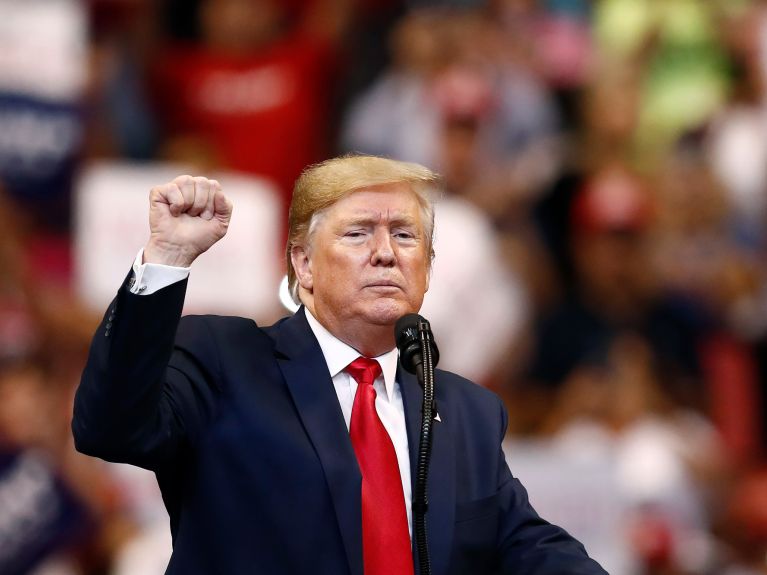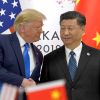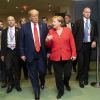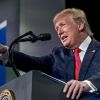The brave new world of Trumpism
Who bears the consequences of President Trump’s tariff policies?

In early August, President Donald Trump was able to celebrate a small yet tangible success in his beloved trade war. The European Union and the United States had just signed an agreement on the import of American beef to Europe – one in which the EU committed to accepting up to 35,000 tons of hormone-free beef from American suppliers over the next seven years.
Welcome to Trumpism
As the total of EU imports is not allowed to exceed 45,000 tons per year, the agreement is basically a deal that will be carried out to the detriment of other supplier countries, such as Argentina and Uruguay. In the future, they will have a quota of only 10,000 tons. Welcome to the brave new world of Trumpism. As seen from Brussels and Berlin, the agreement is the price they needed to pay for a kind of cease-fire in Trump’s trade war against Europe.
The president postponed the decision on whether he wants to levy new tariffs on European cars – that is, on German cars – until Nov. 13. Prior to that, the EU had also already pledged to promote the sale of American soybeans and liquefied natural gas (LNG). Agreements such as these seem to confirm Trump's belief that trade wars are “good and easy to win,” and thus that protectionism pays off. Either way, he appeared conciliatory at the latest G7 summit, where he said he did not need any tariffs on cars and that he was hoping for a good trade agreement.
US economy suffers
In other words, Trump has actually achieved something with his policy of threats. The only question is how the citizens of the US actually benefit from this approach – at least beyond narrowly defined interest groups, such as cattle breeders. Indeed, it is ultimately American consumers who are going to bear the cost of tariffs by having to pay more for imported consumer goods. When trading partners defend themselves and retaliate against Trump, US industry also ends up suffering.
In this context, it can be instructive to look at the indirect consequences of these actions, that is, at the collateral damage associated with customs duties. The Kiel Institute for the World Economy recently presented a study in which experts pointed to the fact that today’s industrial products are manufactured in long supply chains, which means that those primary products entering the chain at almost any point will now be subject to Chinese or US customs duties. This, in turn, has an effect especially on countries not involved.
Less imported goods worldwide
Today, Canada has $648 million in customs costs as a result of the Chinese-US trade war; Mexico has $522 million and the EU more than $1 billion. The chemical, electrical and automotive industries are the sectors most affected. However, the victims also include – and this might surprise Trump's trade policy experts – the US itself, which now has to pay $415 million more for primary products. The damage is almost the same level as in China.
And this is just the short-term view of things. The long-term perspective makes everything even clearer. Economists at Germany’s Commerzbank are now referring to a “new cold war” having broken out between the US and China. As a consequence, US imports from the People’s Republic have plummeted by 10 percent over the past three months, and China’s imports from the US have fallen by as much as 20 percent.
Trump weakens US economy
In an ironic quirk of fate, America’s current accounts deficit – which, in Trump's view, illustrates the US disadvantage in world trade – has continued to rise during his term in office. In fact, the US deficit in trade with China rose to $420 billion last year, from $375 billion in 2017. It has grown not despite, but because of his policies. Indeed, the uncertainty that Trump engenders tends to weaken the global economy, which means that the EU and China – as trading partners – start to suffer; today, their currencies, the euro and the renminbi, are coming increasingly under pressure, the dollar is getting stronger and American exports are becoming more expensive.
The economists at Commerzbank argue that Trump’s policy will also lead to a strengthening of the trend toward deregulation, which began with the 2008 financial crisis. Entrepreneurs are now rating the risks associated with doing business in foreign countries higher. As a result, the value chains become shorter and overall production less efficient. This, too, will ultimately harm the US economy.
However, the worst consequences of Trump’s economic nationalism are political and strategic in nature. In a recent article in Foreign Affairs, US economists Chad P. Bown and Douglas A. Irwin accuse the president not only of being openly protectionist, but also of having launched an “attack on the global trading system.”
Read the whole text on The German Times website
Nikolaus Piper is an author for the Süddeutsche Zeitung.


